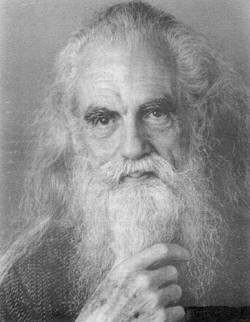

Queer Places:
Harvard University (Ivy League), 2 Kirkland St, Cambridge, MA 02138
159A Noe St, San Francisco, CA 94114
Christ Church Cemetery
Gardiner, Kennebec County, Maine, USA

When Ben Gardiner started the AIDS Information Bulletin Board in 1985, there was still an openness to discuss various theories on the nature and cause or causes of the “gay health crisis”. The “human immuno-deficiency” virus had not yet been named. Censorship had not set in. Ben's approach, from the very beginning, was one of determined impartiality. He reported what the AIDS Establishment said, and he also reported what we said — those of us who dissented from the orthodox AIDS model.
"As gay lib moved into the Democratic Party, Ben played a major role," said Paul Boneberg, executive director of the GLBT Historical Society. "He was a fiercely uncompromising gay activist who helped create the community we know now. Wherever there needed to be protest raised or work done, Ben was there."
Ben Gardiner was born in Boston on July 11, 1921, the son of Robert Hallowell Gardiner (1882–1944) and Elizabeth Denny (1888–1980), and was raised in Massachusetts. He completed his education at Harvard University, majoring in history. His early career included a stint covering the arts for the Boston Herald. He served in the U.S. Army during World War II, participating in the decisive Battle of the Bulge.
Gardiner was married for nearly 10 years and fathered four children. Following his divorce in the early 1950s, he moved to New York City, where he held various jobs, including waiter and model. He later worked as a cross-country furniture mover for Mayflower.
Gardiner began his recovery from alcoholism around the age of 30. He participated in the recovery community for the rest of his life. "Active in recovery programs since the 1950s, he inspired and helped thousands recover from alcohol and substance abuse," said longtime friend Paul Melbostad, an attorney who was also counsel for the Bay Area Reporter.
Gardiner also had an acting career that spanned nearly five decades. A member of the Screen Actors Guild, he performed in movie and television productions, as well as on stage. He appeared as an extra in several films including North by Northwest (1959), The Doors (1991), Interview with the Vampire (1994), and The Tripper (2006).
In the mid-1960s, Gardiner spent time at the Holy Cross Monastery in West Park, New York. He underwent a religious conversion that led him to start a contemplative order in Arizona called the Community of St. Matthew, and he later ran a retreat house for several years.
In the late 1970s, Gardiner came out as gay and moved to San Francisco, where he became a community organizer and activist. He worked on Harvey Milk's election campaigns and was a member of the Butterfly Brigade, a safety campaign that encouraged gay people to blow whistles if they witnessed homophobic violence.
Gardiner was an active member of the San Francisco Gay Democratic Club (now the Harvey Milk LGBT Democratic Club). But just as a group of progressive, grassroots-oriented activists had broken away from the Alice B. Toklas Democratic Club to form the Gay Democratic Club, Gardiner and others split off from that club to form the Stonewall Democratic Club (not related to the national Stonewall Democrats). He served as president of the Stonewall Club for a year and remained an officer throughout its decade-long existence.
In February 1982, Gardiner organized the first public political meeting on AIDS in San Francisco, at a time when the new disease then referred to as "gay cancer" was just starting to impact the community. "People were terrified, but they didn't see it as political," Boneberg recalled. "It was a visionary thing to ask what does this mean and what should we do about it. He was the best of activists in the worst of times."
During the 1980s and 1990s, Gardiner attended AIDS conferences throughout the world, and in San Francisco he cared for people with the disease in his Noe Street apartment. He told his daughter that the amount of death reminded him of the war.
Gardiner in 1985 established the AIDS Info BBS, perhaps the first computer bulletin board system dedicated to HIV/AIDS (the AIDS Info database is now hosted by the University of California at San Francisco). He also supported QueerNet, one of the first providers of online LGBT discussion groups and Web sites. "Ben had an understanding and a hunger to make use of the net to support LGBT and HIV/AIDS communities that put people a third his age to shame," said QueerNet founder Roger Klorese. "His AIDS Info BBS was a pioneering resource, and he helped turn QueerNet from a hobby to a self-funding online resource that is about to turn 20."
A man of many aspects, Gardiner was also involved with the Radical Faeries, going by the faerie name of Oola.
Gardiner's interest in activism and the arts led him to learn Web design and filmmaking. He started his own company, Sibylline Productions, which produced oral histories and films about his extended family and for private clients. He also ran a mail-order bookstore called the Sibylline of Books.
Gardiner worked for a time as a staff member in the district office of the late state Senator Milton Marks (D-San Francisco). He also volunteered with community organizations including the Duboce Triangle Neighborhood Association and the Playwrights' Center. "He was a pioneer in fighting for gay rights," said Carolene Marks, wife of the late senator. "He was a man of integrity and loyalty to his causes, friends, and community."
He died on January 23, 2010 in San Francisco, California, USA.
My published books: